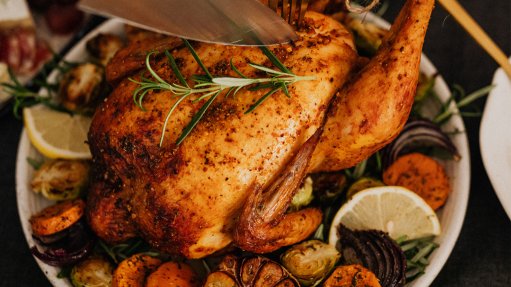
The South African Poultry Association (SAPA) says it is puzzled by the International Trade Administration Commission’s (Itac’s) recommendation to Trade, Industry and Competition Minister Ebrahim Patel that certain rebates for frozen poultry imports could be implemented to curb alleged shortages in the market.
SAPA believes these rebates would be unnecessary, unjustified and damaging to the local poultry industry, as neither poultry farmers nor industry analysts are expecting any shortages now that the massive threat that was Avian Influenza has been abated.
In a report released on March 6, backdated to December 15 last year, Itac finds that the market will experience a shortage of 172 000 t this year and has awarded 65 permits allowing importers to claim rebates on their orders.
Some of these rebates will apply to bone-in chicken, which SAPA says effectively negates the hard-fought anti-dumping duties agreed to in the Poultry Sector Master Plan to curb chicken dumping.
The 65 permits issued by Itac are valid from January 26 to April 27, with the import quota being 43 000 t for the first quarter.
In 2023, SAPA said it could guarantee that the country would not experience poultry shortages over the festive season, which turned out to be true. SAPA is also confident in its latest calculations, saying capacity has grown significantly in the last five years owing to the industry’s R2.1-billion of investments.
“These rebate permits are undoing that work, they are designed to encourage additional chicken imports when the country does not need them. The rebates will cause further harm to the local poultry industry which is beset by challenges already,” says SAPA broiler GM Izaak Breitenbach.
He believes it to be ironic that Itac has calculated the material harm done to the local industry owing to dumped poultry product, and yet approved import permits for importers to purchase dumped product.
Moreover, Breitenbach says government has not fulfilled its duty in compensating farmers for culling flocks in accordance with the law, nor has a relief fund materialised for the industry – as announced by Deputy President Paul Mashatile in October.
Breitenbach concludes that the latest rebates will only serve to further imperil small-scale farmers that are trying to recover from the Avian Influenza outbreak, while padding the profit margins for importers to address a problem that does not exist.
OTHER VIEWS
The Association of Meat Importers and Exporters of Southern Africa (AMIE) has welcomed the recommendation by Itac to implement rebates on boneless and bone-in chicken cuts, saying that the move will keep the price of chicken in check for consumers.
Imported chicken typically carries a duty of 62% for frozen bone-in and 42% for boneless chicken pieces. AMIE believes import duties are a regressive form of tax that impacts consumers most directly.
Food distributor Hume International has also welcomed the “reprieve for consumers”, noting that the price of eggs increased by 38% in 2023, chicken giblets by 18.3%, fresh chicken portions by 14.6%, whole chicken by 8.4% and individual quick frozen portions by 6.4% - which are all above inflation for the year.
Hume says the price increases clearly reflect the impacts of bird flu and that South Africa does not produce enough chicken to supply local demand. In this regard, imports serve as an important complement and price regulator in the local market.